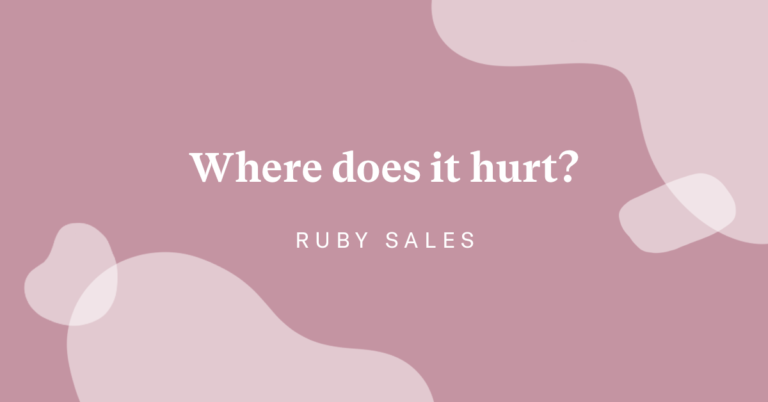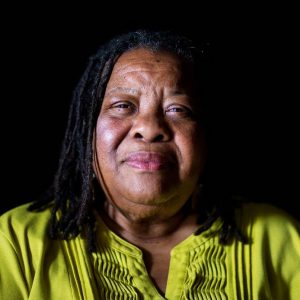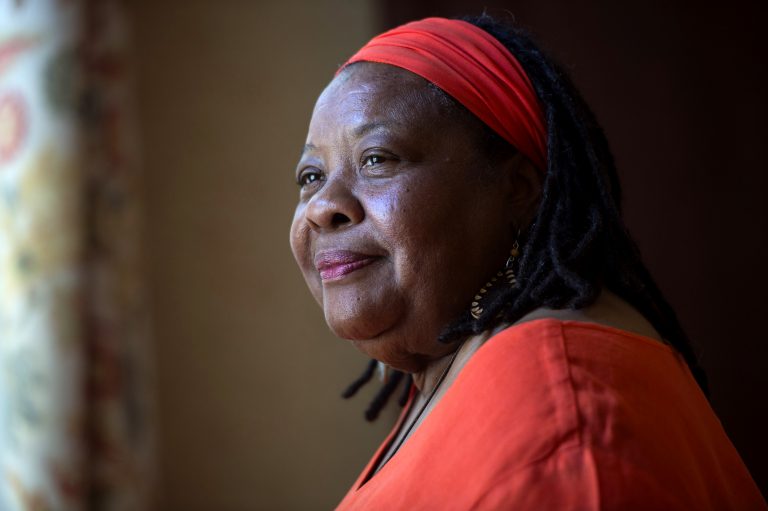Ruby Sales
The Inner Life of Social Change
Public theologian Ruby Sales opens up what it was like to be a teenage participant in the civil rights movement — including the impatience she had with religion and how she circled back, through her experiences of the movement, to a sense of the deep reason for inner life and religious groundings. The question she carries with her, “Where does it hurt?”, models new ways for us to understand one another.

© All Rights Reserved.
Guest

Ruby Sales is the founder and director of The Spirit House Project in Atlanta. She is included in an oral history of the Civil Rights Movement at the Smithsonian National Museum of African American History and Culture.
Transcript
[music: “Sun Will Set” by Zoë Keating]
Krista Tippett, host: I’ve had hundreds of big conversations, and my conversation partners share wisdom I carry with me wherever I go. Ruby Sales is an elder of the civil rights movement. That movement’s marches started in churches and ended in churches. Its leader was a preacher, and its spirituals and hymns became hymns of the nation. Ruby opens up what it was to be a teenage participant in that work of social shift — including the impatience she had with religion and how she circled back, through her experiences of the movement and of life, to a sense of the deep reason for inner life and religious groundings.
This is Becoming Wise. I’m Krista Tippett.
Ms. Tippett: One thing you’ve said, and you’ve likened yourself to the Black Lives Matter — a lot of the kids who are involved in that today — that you were not especially religious, that you had this grounding in church. But you said that you used to complain — a lot of you used to complain when there had to be these obligatory prayers before everything started.
Ruby Sales: It was downright embarrassing.
[laughter]
I mean you couldn’t go to a mass meeting without these people always praying. And it was like, my God, do we have to do this? But when I first went on my first demonstration, I was really kind of naïve, unsophisticated, a peasant who had been bred on black folk religion and who really believed — I was a part of the Pepsi generation who really believed that right was right, and it would win out. So I went on my first demonstration, and I’m embarrassed to say this, but we were surrounded by horses and state troopers who wouldn’t let us go to the bathroom, and I kept looking up at the sky, waiting for the Exodus story to happen to me. [laughs] And it didn’t happen. I expected God to appear and some chariot to open up in the sky because I couldn’t imagine that we were so right, and God would be so wrong. In my 17-year-old mind, I couldn’t imagine that — I mean, my 16-year-old mind. And so I lost religion that day, and I slowly became a Marxist. I became a materialist. If it wasn’t economics, if it wasn’t race, then it didn’t exist. And I thought black folks were religious fanatics. [laughs]
Ms. Tippett: So tell us, how did you eventually circle back to the place or circle to the place — maybe it’s not back — where you went to divinity school, where you started to be a public theologian? What did that mean?
Ms. Sales: I think the paradox is that even when we think we’ve left home, we never really go anywhere. And so I think that although I thought that I was not religious, the truth of the matter is, I was, and I went to church all the time, and that was the Sweet Honey concerts, and Bernice Johnson Reagon kept us in church. And all of the songs that she sang, and all of the music and the God talk that she would do from the stage, she became the preacher for a generation of African-American young people. She herself was the daughter of a preacher who thought that we had left the church, but black folk religion was so deeply ingrained in us that we never really left it. So I carried with me the songs. I carried with me the testimonies. I carried with me the whole notion of right relations. That was the cornerstone of how I imagined justice.
Ms. Tippett: Even when you didn’t feel religious.
Ms. Sales: Right, I really never left. But a defining moment for me happened when I was getting my locks washed, and my locker’s daughter came in one morning, and she had been hustling all night. She had sores on her body, and she was just in a state — drugs. Something said to me, ask her: “Where does it hurt?” And I said, “Shelley, where does it hurt?”
And just that simple question unleashed territory in her that she had never shared with her mother. And she talked about having been incested. She talked about all of the things that had happened to her as a child. She literally shared the source of her pain. And I realized, in that moment, listening to her and talking with her, that I needed a larger way to do this work, rather than a Marxist, materialist analysis of the human condition.
And also, I was riding down the road one day in Washington, D.C., after having been at a demonstration against the war in Iraq, and suddenly, out of nowhere, I started crying. And I realized that God had been with me, even when I hadn’t been with myself. And those moments made me really begin to seek to go back, to really think deeply about black folk religion and to really want to develop, in a very intentional way, an inner life that had to do with how I lived in the world.
[music: “Sun Will Set” by Zoë Keating]
Ms. Tippett: I have hung on to that question — “Where does it hurt?” — as a spiritual and practical tool so resonant in this era of tumult and social shift. Ruby Sales is founder and director of The Spirit House Project in Atlanta.
Becoming Wise is produced at On Being Studios, which is located on Dakota land. Our team is Marie Sambilay, Lily Percy, and Chris Heagle. And our theme music is provided and composed by Zoë Keating.








Reflections